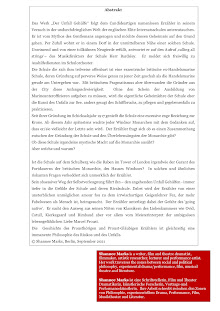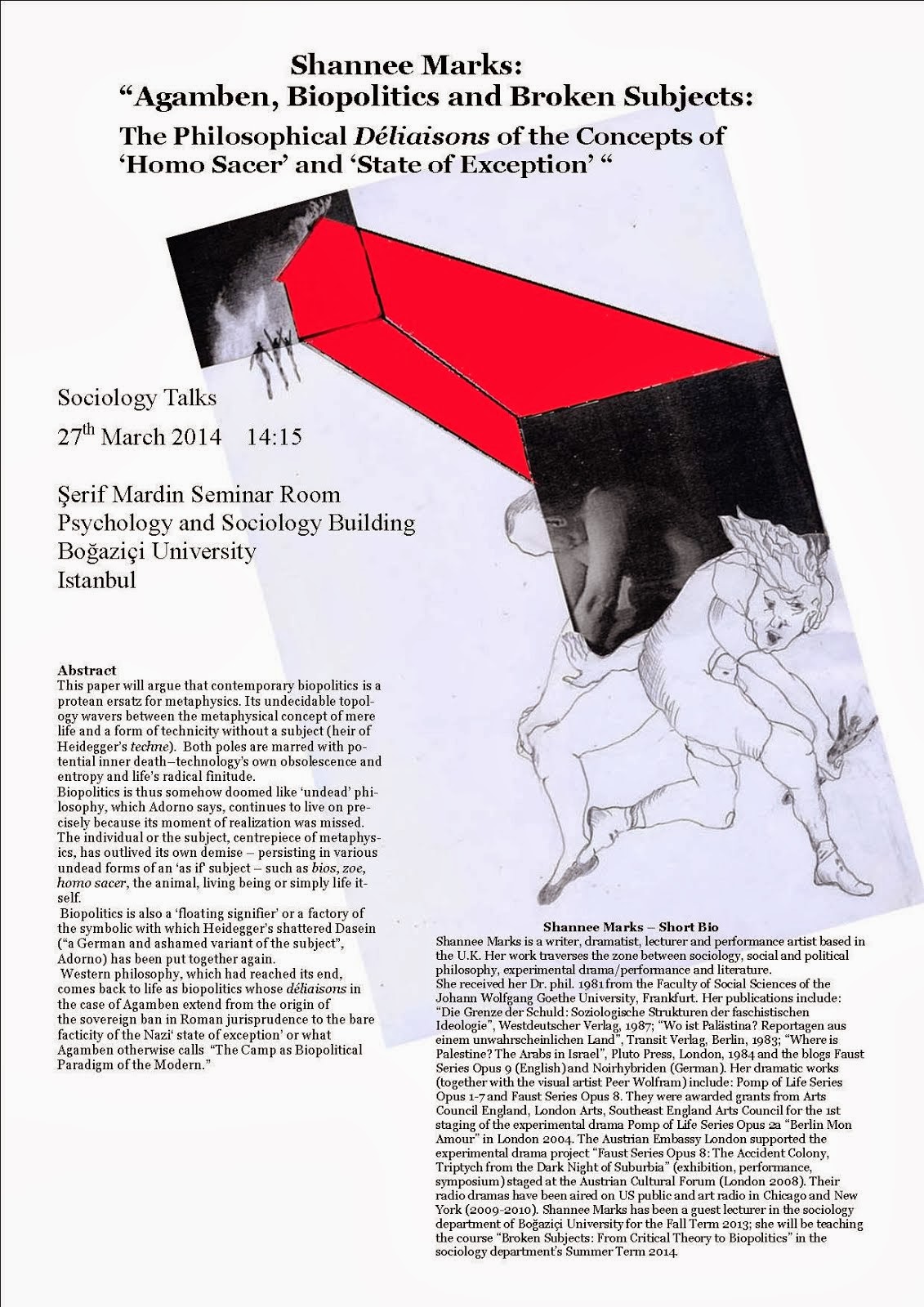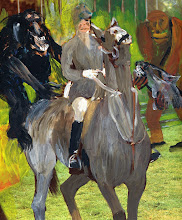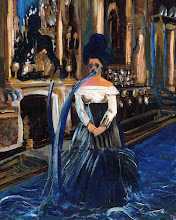The direct heat of the day had passed, but it was radiating with all the more intensity from the tarmac covering the club courtyard. We had taken the table outside and for obvious reasons started talking about death by fire. I had no quarrel with Hans. On the contrary, I liked Hans. I know I shouldn’t have but I did despite myself. My quarrel was with the Cagliostro of the Ensemble, the man who pulled the strings, Meister Parnt, the Stehgeiger and Kapellmeister. Hans was a helping soul, someone who would always get caught and take the blame for another’s crimes. Not that it was not his fault, not that he wasn’t as guilty as anybody else. But some are just more likeable, they do what they do not for material gain, but because they just want to go on being likeable. Fritz Schulz called Hans a ‘good for nothing’, which goes to show you can’t please everyone. Schulz plays his cello in the Ensemble – at one time he was an architect, now he is a rentier, in other words just a petty landlord like me. I like him because he wears a bow tie. Sometime I’ll ask him if he wants to buy my house.
Parnt is a tenant. You can tell he resents being a tenant because he tells you how good it is that the landlord has to take care of all the repairs. The landlord is working for him, if he’s not satisfied he docks the rent. There is some truth in his ressentiment, as in most. But I can say that only now when “everything is clear, but also everything’s over!” – as Friedrich Nietzsche wrote to Lou von Salome of his relationship to Richard Wagner. He thought that his relationship with her could go against nature – everything is clear, but everything is just beginning. ‘Alles klar’ is one of the crudest of German colloquialisms, suitable for a letter of seduction. But still he makes his point. Everything is clear in the end and the beginning or never.
I was already overheated from a double defeat, my condition was weakened and a magnet for any predator who would just happen to come by. Any child could have followed me from the park and pulled the ring off my finger, were I to be wearing one, without any resistance on my part. I was in a word ready to die, as one is from time to time. The plumber can put me in a similar state almost at will. The colour of plumbers is aquamarine blue, almost turquoise. It will always be for me the colour of death, of my death.
I quite expected the series of attacks upon my will begun in the park to continue. At times such as these I am convinced of the truth of Schopenhauer’s assumptions, to kill someone you need only break his will first. Will is needed not just in the direst of circumstances, in war or in death camps, will is needed to prevent someone from taking away the chair you were just going to sit down upon. That is what happened to me that afternoon in the park. Unsteadiness was already in the air. I was in the park that afternoon doing penance as a labourer in the string section of Parnt’s orchestra. We were performing an outdoor concert for the general public. I had worked my way up from the second violins to the middle rows of the first violins, but my position was always tenuous, not musically, but otherwise. I don’t know what it was, I could just feel it. Outsiders can smell weakness, they sense which plank is loose. They are like vandals who have the eye of building inspectors, tearing down the unstable rickety fence or turning a small insignificant hole into a large ragged egress, spacious enough so that any intruder can go in and out at will. I was that rickety fence, the loose plank, fitting stuff for the fireplace.
A woman violated the invisible line between orchestra and public exactly where I was standing. She did not even need to ask me for me to hand over the empty chair next to which I was standing. The empty chair was not just any chair, not just one of those physical mass produced objects one sees stacked up in their dozens along the walls of community halls or gyms in readiness for members of the public attending the local talent. That chair was an idea of a chair in an orchestra row and those chairs remain standing where they are even if the expected occupant is not present. No one would dare to sit down in such an empty chair unless given permission by the conductor (which I had) and so surreptitiously improving his or her rank in the orchestra. Or in my case – remove the chair thus putting my rank in peril. By giving away the empty chair meant for Dietz who was not there I had destroyed the row. His imaginary presence would have protected me, had the chair stayed put. After dealing myself this first nearly mortal blow I was in no condition to resist the friendly attack of some of the second violins. As usual always intent on levelling, disguising it with camaraderie. The empty chair I had given away was actually my own chair, had Dietz been there. The conductor had told me to move up to the outside chair where Dietz would have normally been sitting. I deserved all that ensued from my collapse of will – I had not been strong enough to protect my own rank nor the fortuitous privilege of sitting at the outer desk of the first violins. A cluster of youths festering on the display of artificial rocks behind the orchestra seemed to be fleering at me. It was then that I allowed myself to be robbed a second time. I gave up my rank while at the same time clinging pathetically to the remaining chair. The second violins said I looked so alone with my one chair on the outside; I should join them where it was hottest and most crowded in the middle of their row. I squeezed myself behind Hartmann, who was actually below me in rank, but now that I had been pulled into the viscera of the orchestral body all order had been abandoned. I could expect no mercy from anyone. Dora, the first violin soloist, and the second violins, satisfied that they had knocked me down a notch, pressed in on me from both sides. No wonder my hands were trembling, I tried to dry them on the dust cloth covering my violin in its case and instead of staying wet and slippery they became damp and sticky. Dora flirted with the second violins through my head not even bending forwards or backwards as if I were not there. Hartmann moved his chair so as to tilt my stand, impatient that he should happen upon an obstacle. The second violins, their amalgamated bald pates gleaming with sweat, nodded benignly at me and commented on how much happier I looked near them. Eli eli lama azavtani. After this ordeal I was quite willing to agree with Hans that death by water is preferable to death by fire.
Although I had followed Hans into the corner it is in the nature of corners that I should be the first to leave. I began my counter-offensive. I told Hans that I thought the German people were on the whole well educated. I knew Hans would be happy to hear that being a bachelor. If Hans were English I could have caused him the same happiness, if I had said, there are no greater dilettantes than the English. Most peculiar, a people who are glad to be known for not being quite so good at things. I made Hans happy again by telling him there are no greater dilettantes than the English. “Hans is going to bring us out some cider.”, said Parnt, combing his brown greasy hair with his fingers, (he probably dyes it) pulling on the loops of his artist’s bow tie of black velvet. Virtuosos leave the left side of their collar unstarched. Parnt used Hans’ absence to exercise what he thinks is our special relationship. I am always getting myself bonded in that way. What do I do to attract such attention? “Have you been writing anything lately?” he asks. “Any chapters? About me? You’ll give me credit won’t you?” I had told Parnt that I write, one has to say one is doing something. I couldn’t very well tell him I am working on his downfall, nothing personal of course, but he is included in the lot. “Have you had your hair cut lately?” I asked. “No I washed it.”, pleased to have tricked me into scrutinizing him. I knew that he rubbed himself with Franzbranntwein all over his body, every night before getting into bed. Was this an old K.u.K habit? Parnt was originally from Bohemia. Peter Altenberg recommended a similar treatment to his readers – as a cheap substitute for an alpine bath cure. Parnt forced me to listen to this sort of intimate detail. Somehow I had been roped into ringing him every Thursday night for a never-ending chat about what he loved best - himself. I had to fill the time before his favourite radio program started, as a kind of curtain raiser.
One should never tell anyone that one writes things down. They either stop talking altogether or start telling you embarrassing details about their personal hygiene. They immediately assume you are writing their life story with them in the role of a Manfred type demonic hero. I have never been able to correct this error, swept along by their plans for literary fame, becoming their quasi-private secretary, reminding them of their own biographical anecdotes and ephemera when their memory fails.
Was I grovelling before power, numbed by what I saw as success, just like the French people after 1815, or even before, according to Michelet? Did I not succumb to the successful pursuits of little nothings in others? On my face the equivalent of ‘mueca de indio’ – the Indian grin. Or was my submissive manner more like La Malinche, Cortés’ Nahuan courtesan, who mediated the capitulation of the indigenous people to the Spanish conquistadors. Her child from Cortes was the first Mestizo. Some say she was a prophetess of revolution – in others word capitulation and betrayal mark the onset of revolt. That is hard to think. Or is it more that “most deceiving happiness”, the one that comes when “you’ve placed everything on the last card and lost everything …” (Ernst Bloch)? In my paradise garden it always rains apple blossoms. Or as Parnt says, the thickest peasant always has the thickest potatoes.
Epilogue:
An earthquake can betray you – I told Hans – or he me – I can’t remember which. The history of South America is full of both earthquakes and betrayals. In the conspiratorial stirrings of the great revolt against the Spanish in the 19th century – a trivial episode of betrayal ‘saved’ the war of liberation. Francisco de Miranda was a figure of enlightenment for the continent - almost a revenant of Giovanni Pico della Mirandola in the Americas. Miranda founded a secret revolutionary lodge – the Lautaro Lodge - while in exile in London – named after the famous Aracaunian Indian warrior Lautaro who led his people in a fight against Spanish enslavement in Chile. Before settling into exile life in London Miranda had been a general in the French Revolution, a member of Mme. de Staël’s literary circle and even an acquaintance of Napoleon – who although he considered him too dandyish – admitted he was burning with “a sacred fire”.
Whilst in London Miranda was visited by a delegation from an independent junta in Caracas - who were trying to win British recognition and support against Spain. One of the members of the delegation was Simón Bolivar who became Miranda’s disciple. He persuaded Miranda to return to Venezuela and lead the revolutionary army. But Miranda resembled Pico della Mirandola not just in name – he too was destined to be betrayed by someone close to him. But first came the earthquake, which destroyed most of Caracas and the revolutionary élan of the Venezuelans. His soldiers deserted. But even worse, Bolivar, by now his principal disciple, let a major fortress fall into royalist hands – while he caroused – indulging his flamboyant love of music and girls. Miranda was forced to surrender. Still he might have escaped both the Spaniards and the earthquake – if (like in Kleist’s story of the earthquake in Chile) – he had not been ‘recognized’ by the colonial masters. His recognition was Bolivar’s work. Bolivar turned Miranda over to the royalists. In exchange “for betraying his friend and co-plotter” (William Weber Johnson) Bolivar was allowed to go into exile. Miranda, 33 years older than Bolivar, was taken to Spain where he died in a dungeon in Cádiz. Once again in a ‘tenacious country’ the revolt is haunted by the “theme of the traitor and the hero” (Borges). But who is who?
This was not a simple betrayal – if there ever is such a thing – Bolivar had decided that Miranda was a traitor to the revolutionary cause – so he was merely betraying the betrayer. Did Miranda sense when he adopted Bolivar as his disciple and allowed himself to be persuaded to return to Venezuela from his exile in London – that Bolivar would be the man to betray him? Was that his unconscious wish? Hans said that the betrayal was a mere continuation of the natural disaster, a belated tremor of the earthquake – human motives count for little.
© Shannee Marks, September 2012






























